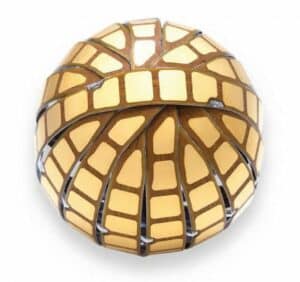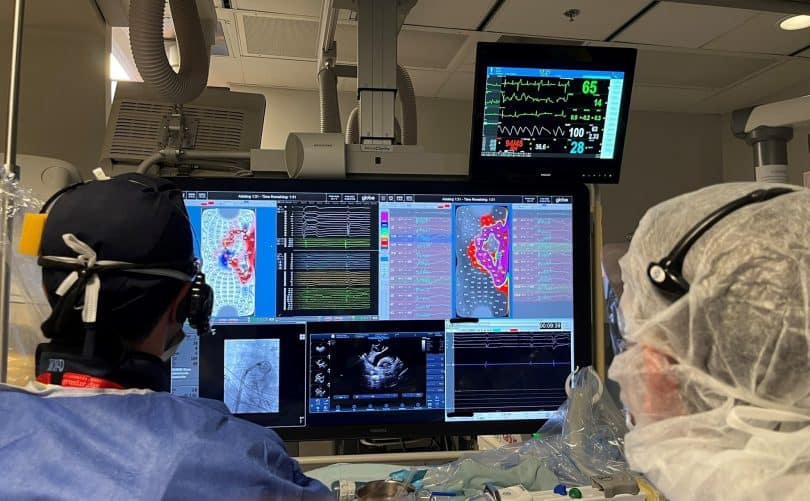Our latest breakthrough promises relief and hope for people living with atrial fibrillation (AF).
AF is the world’s most common heart rhythm disorder. It happens when an electrical disturbance in the heart’s upper chambers (the atria) cause it to beat hundreds of times per minute. It’s a frightening condition that can increase your risk of stroke by 500% and affects more than 200,000 Canadians.
AF is typically treated with catheter ablation: an electrode on the end of a catheter is threaded to the heart where it produces heat (or cold) to create tiny scars in targeted areas of heart tissue. This interrupts the arrhythmia and restores the heart’s normal rhythm. Until now, it’s been a very common but complex procedure that sometimes needs to be repeated to sustain the results.

Recently, at St. Paul’s Hospital, that all changed. Dr. Marc Deyell performed the first-in-BC ablation procedure using a breakthrough technology developed by a team of clinician researchers, engineers, and scientists from Kardium, a medical solutions firm headquartered in Vancouver.
Dr. Deyell used the Globe System to navigate into the patient’s heart, quickly map the rhythm disturbances, deliver the ablation, and verify that it was successful while still in the heart – in real time.
It’s a game changer for people living with AF.
A better mousetrap
More than 15 years ago, Dr. Sam Lichtenstein co-founded Kardium with a trio of inventors and entrepreneurs. Lichtenstein was head of cardiovascular and thoracic surgery at St. Paul’s Hospital. In addition to his medical degrees, Lichtenstein had a PhD in engineering and multiple patents related to interventional cardiology and atrial fibrillation (among others). It’s easy to understand why he was keen to partner with the team.
Today, Kardium’s Globe Mapping and Ablation System stands as a proof point of what happens when you bring brilliant scientists together with savvy investors and ambitious entrepreneurs.
“This all-in-one system is revolutionary,” says Deyell. The system is faster. It’s less complex for the physician. And it reduces the likelihood that the patient will need further ablations. “With early treatment of AF, we can help most people maintain their quality of life.”
From Dr. Lichtenstein’s vision to Dr. Deyell’s Electrophysiology Lab, we are fortunate to have so many creative, tenacious clinicians, researchers, and life science partners. In this way, ideas in the lab can move quickly to our patients and residents across British Columbia and beyond.
Your donation to St. Paul’s Foundation brings this innovative care to life.
By Kris Wallace
Special thanks to our physicians and our partner, Kardium!
Dr. Sam Lichtenstein, director, Cardiothoracic and Vascular Surgery, St. Paul’s Hospital; medical director, Regional Cardiac Science Program, Providence Health Care; clinical professor and acting head, Division of Cardiac Surgery, UBC.[1]
Dr. Marc Deyell, director, Heart Rhythm Research and Electrophysiology Laboratory, St. Paul’s Hospital; associate professor of medicine, UBC.
Kardium Inc. was founded in 2007 and has twice been recognized as “Medical Technology Company of the Year,” by Lifesciences BC – most recently in 2021.
